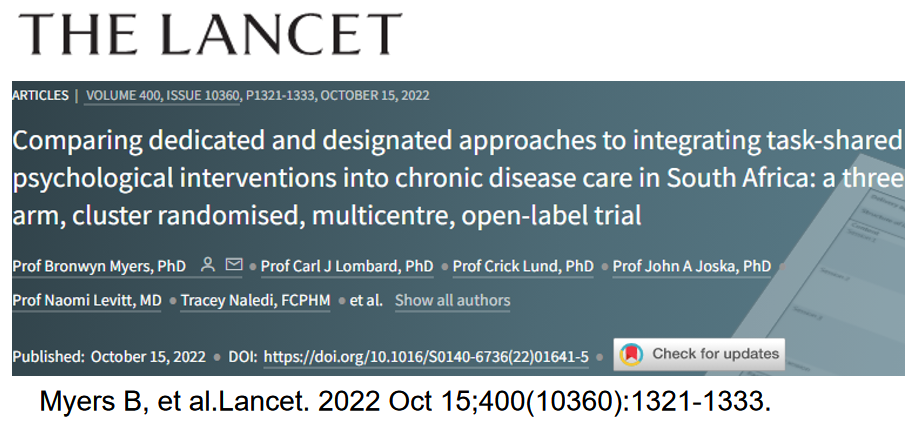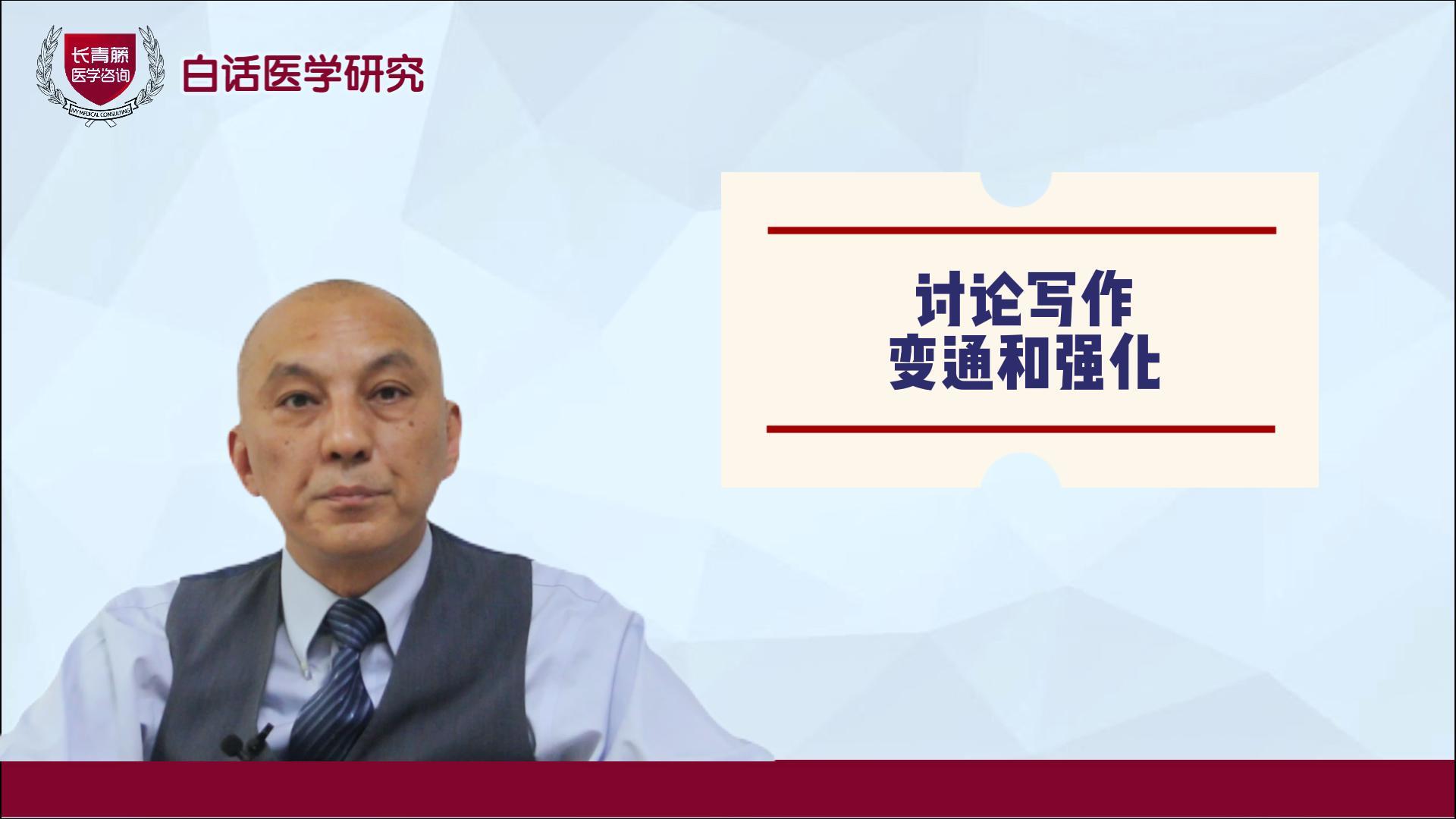2022-11-07


社区卫生工作者越来越多地在低收入和中等收入国家的初级卫生保健中为抑郁症和酗酒问题提供任务分担的心理干预措施。我们的目的是比较专门提供护理的社区卫生工作者与指定提供超出其现有职责的护理的社区卫生工作者的有效性,以及与慢性身体疾病患者的常规治疗的有效性。
研究共纳入1340例患者,与正常治疗相比,专用组(HIV感染者调整后的平均差异−5.02 [95% CI−7.51至- 2.54],p<糖尿病患者−4.20[−6.68至- 1.72],p< 0.0001)和特定组(HIV患者−6.38[−8.89至- 3.88],p< 0.0001;糖尿病为4.80[−7.21 - - 2.39]的患者,p< 0.0001)在12个月时抑郁评分有更大的改善。相比之下,AUDIT评分的降低在各研究组中相似,没有注意到干预效果。
提供chw领导的心理干预的专门和指定的方法在减少抑郁方面同样有效,但需要加强以支持减少酒精。该试验扩展了chw提供的心理干预的证据,为不同的提供方法如何影响患者的结果提供了见解。
Abstract
Background: Community health workers (CHWs) are increasingly providing task-shared psychological interventions for depression and alcohol use in primary health care in low-income and middle-income countries. We aimed to compare the effectiveness of CHWs dedicated to deliver care with CHWs designated to deliver care over and above their existing responsibilities and with treatment as usual for patients with a chronic physical disease.
Methods: We did a three-arm, cluster randomised, multicentre, open-label trial done in 24 primary health-care clinics (clusters) within the Western Cape province of South Africa. Clinics were randomly assigned (1:1:1) to implement dedicated care, designated care, or treatment as usual, stratified by urban-rural status. Patients with HIV or type 1 or type 2 diabetes were eligible if they were 18 years old or older, taking antiretroviral therapy for HIV or medication to manage their diabetes, had an Alcohol Use Disorders Identification Test (AUDIT) score of eight or more or a Center for Epidemiologic Studies Depression Scale score of 16 or more, and were not receiving mental health treatment. In the intervention arms, all participants were offered three sessions of an evidence-based psychological intervention, based on motivational interviewing and problem-solving therapy, delivered by CHWs. Our primary outcomes were depression symptom severity and alcohol use severity, which we assessed separately for the intention-to-treat populations of people with HIV and people with diabetes cohorts and in a pooled cohort, at 12 months after enrolment. The Benjamini-Hochberg procedure was used to adjust for multiple testing. The trial was prospectively registered with the Pan African Clinical Trials Registry, PACTR201610001825403.
Findings: Between May 1, 2017, and March 31, 2019, 1340 participants were recruited: 457 (34·1%) assigned to the dedicated group, 438 (32·7%) assigned to the designated group, and 445 (33·2%) assigned to the treatment as usual group. 1174 (87·6%) participants completed the 12 month assessment. Compared with treatment as usual, the dedicated group (people with HIV adjusted mean difference -5·02 [95% CI -7·51 to -2·54], p<0·0001; people with diabetes -4·20 [-6·68 to -1·72], p<0·0001) and designated group (people with HIV -6·38 [-8·89 to -3·88], p<0·0001; people with diabetes -4·80 [-7·21 to -2·39], p<0·0001) showed greater improvement on depression scores at 12 months. By contrast, reductions in AUDIT scores were similar across study groups, with no intervention effects noted.
Interpretation: The dedicated and designated approaches to delivering CHW-led psychological interventions were equally effective for reducing depression, but enhancements are required to support alcohol reduction. This trial extends evidence for CHW-delivered psychological interventions, offering insights into how different delivery approaches affect patient outcomes.
Funding: British Medical Research Council, Wellcome Trust, UK Department for International Development, the Economic and Social Research Council, and the Global Challenges Research Fund.
文章连接:linkinghub.elsevier.com/retrieve/pii/S0140-6736(22)01641-5
百度浏览 来源 : 医微客
版权声明:本网站所有注明来源“医微客”的文字、图片和音视频资料,版权均属于医微客所有,非经授权,任何媒体、网站或个人不得转载,授权转载时须注明来源:”医微客”。本网所有转载文章系出于传递更多信息之目的,且明确注明来源和作者,转载仅作观点分享,版权归原作者所有。不希望被转载的媒体或个人可与我们联系,我们将立即进行删除处理。 本站拥有对此声明的最终解释权。




发表评论
注册或登后即可发表评论
登录注册
全部评论(0)